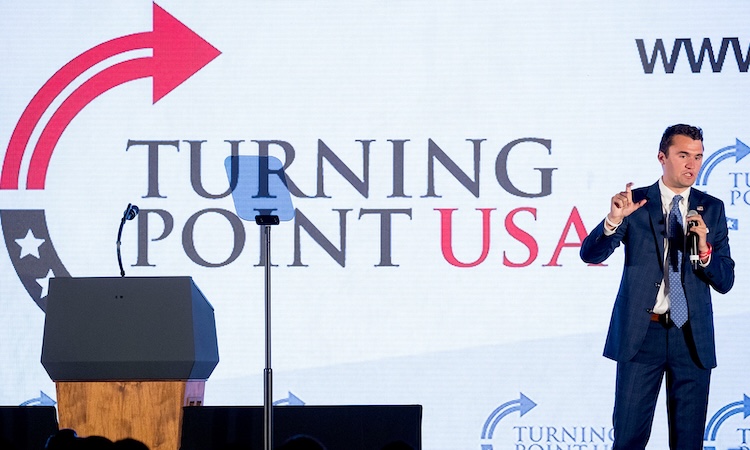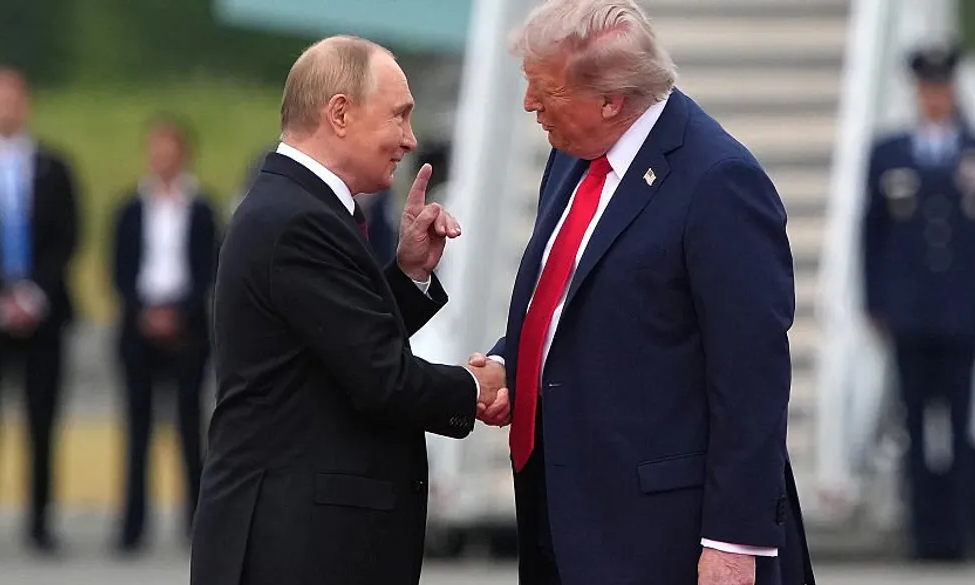Its public image is something that the bourgeoisie has had to take increasingly seriously over the course of the last 150 years. As workers gained literacy and the capitalists had to concede them the right to vote, the ruling class needed to maintain an image of itself that could be marketed to workers.
The capitalists want the working class to believe in the heroic nature of their overlords, in their benevolence, and their innately innovative nature. In presenting themselves this way, they hope to legitimise in the minds of the workers their enslavement, via the wages system, to capital.
In previous generations, the ruling class maintained a more patrician demeanour, still distant from the working class but defining itself by its stern religiosity and publicising its ‘good works’. As the 20th century progressed, however, under the pressure of egalitarian ideas that spread as a result of the victories of socialism, the ruling class in the USA felt the need to change this image; to be more ‘relatable’.
From the point of view of the US propaganda system, this made complete sense. A central plank of bourgeois ideology in the USA has long been the notion that the any proletarian can work his way into the ruling class through sheer hard graft. The capitalists might be wealthier than ever, but since the 1960s a certain number of them have attempted to weave themselves a ‘rebel’ image; of their opposition to an ‘establishment’ from which they were excluded.
Such characters have included the likes of Richard Branson, Bill Gates and (for the Twitter age) a certain Elon Reeve Musk. It is notable that all these well-known names from the ranks of the exploiters are men whose elevation to the level of the super-rich was made during their own lifetimes. Unlike those who simply inherit their vast fortunes and whose names are rarely publicised.
Musk and co came not from rags, but from affluence. But while their original position in the bourgeois class had been relatively lowly, they each found themselves in a position to win the battle of competition in a new field of business (personal computing for Bill Gates, internet shopping for Jeff Bezos etc) and thus arrived in the elite ranks of the monopolists.
Throughout his career, Elon Musk has proven to be an adept self-promoter, and has taken great care to cultivate the image of being more a scientist and adventurer than a businessman. Indeed, Musk has frequently defended his acquisition of vast wealth by asserting that he only wants such accumulation in order to spur innovation in space exploration and the human conquest of distant planets.
But behind the constructed image, Musk’s real position is that of a man whose fortune is heavily dependent on government largesse – particularly from the US Department of Defence. He is an integral part of the US imperialist war machine, and his ‘libertarian’ politics, Twitter rants and ‘rebel’ stylings are merely a disguise behind which profits from decaying and blood-soaked imperialism pour into his pockets.
Rags to untold riches?
How does one get to be the ‘richest man on earth’? Is it hard work, gumption and a ‘can do’ attitude? Or might being born into a bourgeois family be the key component for those who wish to become enormously wealthy? In the case of the man who is said to be the ‘world’s richest man’, the latter certainly applies.
According to a story run by Bloomberg news, Elon Musk has an estimated net worth of $436bn. This did not come from thin air and graft, however. Musk was born into a relatively wealthy family, with his father Errol owning half an emerald mining operation in Zambia.
Elon has repeatedly denied this and tried to paint his origins as being much humbler – a typical trick played by those members of the bourgeoisie who want to claim a ‘rags to riches’ backstory. Young Elon began to accumulate his own fortune in the late 1990s when the online bank he cofounded (named X) merged with another company (Confinity) to form Paypal, the now widely used online wallet system.
Musk cashed out of Paypal when it was acquired by Ebay for $176m. This fortune enabled him to found the Tesla car company and Space X, which now jointly operates the US space programme with Nasa.
According to a report in the New York Times, Musk has federal government contracts worth at least $15.4bn. The two largest of these are with the Department of Defence ($3.6bn) and Nasa ($11.8bn) alongside other smaller contacts from the Department of Homeland Security. Clearly, he is profiting greatly from the wars of aggression waged by US imperialism.
Space X’s Starlink satellite system has been integral to Nato’s war on Russia, relied on by the Ukrainian army for battlefield communications and internet access. Realising that the Ukraine war is unpopular with many Americans, Musk has periodically made critical comments about it – but without Starlink, Nato’s communication systems in Ukraine (including its missile targeting) would be severely hampered.
‘Free Speech’ and populism
When Musk bought Twitter in October 2022, he posed for a while as a free speech advocate. But this was nothing more than another example of his personal brand-building. In fact, he doesn’t ‘own’ the platform (now rebranded as X) but is the single largest shareholder with around ten percent of the stock.
The Musk-led takeover of Twitter was partly financed via $13bn in loans from Wall Street banks, which explains why the new management has been desperately trying to monetise the platform in order to keep it looking like a viable business. If it remains a loss maker, those who hold the debt may lose confidence and look to offload it.
In recent months, Musk has taken an overtly political turn by backing and funding Donald Trump’s presidential campaign. Previously, he has backed the Argentine ‘anarcho-capitalist’ Javier Milei and is now supporting Alice Weidel, leader of the Alternative for Deutschland (AfD) party, in the upcoming German federal election.
Musk’s political moves are much more about defending his business interests than they are about any embrace of ‘Trumpism’, which is a deliberately amorphous, shapeshifting phenomenon. This was revealed quite starkly when Musk was embroiled in a recent row with Trump’s supporters regarding the issue of H1B visas in the USA.
This particular visa programme brings skilled workers into the USA whom Trump had committed to getting rid of, only to turn around and defend the programme after winning the election. Musk ran into trouble after being a little too open about where his class interests lie, commenting that his businesses were reliant upon bringing in workers from India and elsewhere to fill skills gaps in the US workforce.
Musk thus revealed a certain truth that Trump’s anti-immigration messaging had studiously avoided –that the immigration system is designed to suit the requirements of the capitalist class. If immigration is high, that is (in part) because there is a demand for cheaper labour from the likes of Elon Musk, as well as being a reflection of the destabilisation visited upon so many countries by imperialist military and economic warfare.
Musk unwittingly revealed the calculation that lies behind ruling-class promotion of ‘right-wing populism’: the capitalists’ need to divert working-class anger over deteriorating living conditions into avenues that are harmless to their system. Immigration is the issue that they traditionally turn to in order to do this, but this strategy comes with a certain amount of risk given that the capitalists need migrant workers and that their hypocrisy in declaiming against immigrants is always in danger of being exposed.
While Musk’s cartoonish political deceptions can be effective at times, especially given his enormous reach via Twitter, when the mask slips workers are all too liable to realise that their interests are not aligned with his after all.
In recent weeks, Musk has actively intervened in British bourgeois politics by exploiting the various grooming scandals that have come to light over the past decade. After the damage done to him by the visa row, he (or his promotion team) clearly felt the need to re-establish his bona fides with the US reactionaries, and what better way to do that than by exploiting a scandal in another country?
In so doing, he gave a huge publicity boost to that reactionary agitator and agent of the British bourgeoisie Steven Yaxley Lennon (aka ‘Tommy Robinson’), claiming (as Lennon also claims) to be interested in protecting working-class girls from abuse. This ‘concern’ raised more than an eyebrow amongst those who are aware that Musk was an associate of deceased paedophile (and intelligence asset) Jeffrey Epstein and his partner in crime Ghislaine Maxwell.
American independent journalist Whitney Webb has chronicled Musk’s extensive ties to the Epstein network, even after his initial conviction for sex offences in 2008. Musk’s apparent concern for working-class girls who are exploited by groups of criminal men apparently did not stop him from mixing in Epstein’s circle.
The truth about Elon Musk’s life and business dealings is thus very far away from his ‘rebel’ persona. He made his money as part of the dotcom bubble and managed to be one of the winners who were left standing when that bubble burst in 2000. Far from being an ‘outsider’ or being somehow opposed to the US state machine, Musk is intertwined with it through extensive contracts that he holds through multiple arms of the US government.
He is a representative of the US bourgeoisie who might enjoy basking in the limelight and playacting the part of the rebel, but in reality is totally dependent on the strength of US imperialism for his profits.
Musk is a profiteer whose riches come at the cost of the slaughter of hundreds of thousands of Ukrainians and Russians, and his class position explains why he is also a rabid supporter of the US imperialism in the middle east, in particular of the US-backed Israeli wars on Gaza and Lebanon.
As with any member of the ruling class, what we need to know is not what he says about himself, or what fake controversies are stirred up around his alleged personality and politics, but how he makes his money.
















